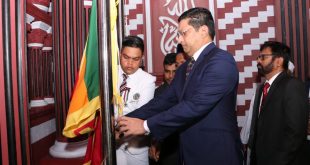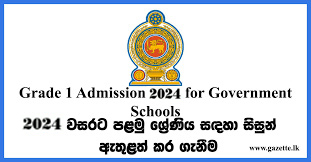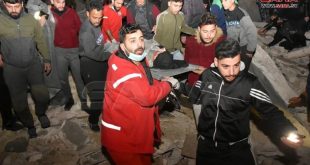 NEW YORK: Saudi Arabia has urged the United Nations to implement the principles of its charter effectively without adopting double standard. It also criticized the use of veto power by some permanent members to block the implementation of UN Security Council resolutions.
NEW YORK: Saudi Arabia has urged the United Nations to implement the principles of its charter effectively without adopting double standard. It also criticized the use of veto power by some permanent members to block the implementation of UN Security Council resolutions.
Addressing the 65th session of the UN General Assembly, Saudi Foreign Minister Prince Saud Al-Faisal emphasized the need to implement the Arab Peace Initiative, which offers normal Arab-Israeli relations if the Jewish state withdraws from Arab territories occupied in 1967.
The Kingdom urged Israel to restore the rights of Palestinians and abide by the principles of international law and UN resolutions and end all settlement activities, saying they jeopardize the peace process and render negotiations meaningless.
“The Saudi government emphasizes the need to put the principles embodied in the Charter of the United Nations into actual and effective practice in a non-selective manner and without any double standard,” the prince said.
Prince Saud added that the United Nations should adopt a credible approach with regards to implementing the principles of international legitimacy, the provisions of international law and the requirements of international justice.
“The important reforms in this field include restriction of the use of the right of veto by requiring permanent members to undertake not to avail themselves of this right in order to veto measures designed to ensure the implementation of resolutions previously adopted by the Security Council,” he said.
The Kingdom also called for the strengthening of the Economic and Social Council and closer coordination among United Nations funds, programs and activities.
Prince Saud described the Arab-Israeli conflict as one of the largest obstacles to world peace and security. “In fact, the Israeli occupation seems to remain as the only colonial polity after the decline of colonialism and the end of policies of ethnic discrimination,” he said.
All Arab countries have supported all the initiatives and endeavors aimed at achieving a just and comprehensive peace in the Middle East, from the Madrid Conference to the present day, he added.
He said they have consistently and repeatedly declared their commitment to peace as a strategic option. The Arab Peace Initiative was based on the principles of international law and UN resolutions.
“My country played an active and effective role in supporting the peace process throughout this period, participated in all the international peace conferences and presented the Arab Peace Initiative, which was adopted not only by the Arab states but also by the Islamic states as a whole and was supported by almost all the countries of the world,” he said.
“The Arab countries hope that the direct talks between Palestinians and Israelis will achieve their objectives in light of the invitation of the international Quartet, which affirmed the terms of reference on which there is an international consensus.
“The moment of truth has come and the crossroads are clearly and plainly visible to us all. This was eloquently expressed by the American President Barack Obama when he said that the window for a two-state solution may be closing soon. The consequences of failure this time are too catastrophic to imagine.”
Prince Saud called on Israel to make a positive contribution to talks.
“We all hope that the government of Israel will take this valuable opportunity to respond, albeit belatedly, to the Arab overtures for peace and to the international consensus based on the necessity of applying the two-state solution in order to put an end to this sanguinary conflict that has been constantly threatening international peace and security for the last six decades,” he added.
With regard to the Iranian nuclear program, the prince said, Saudi Arabia emphasizes the importance of reaching peaceful solutions and supports the efforts of the 5+1 group in this regard which preserves the rights of Iran and the states of the region to the peaceful utilization of nuclear energy in accordance with the safeguards and standards of the International Atomic Energy Agency.
“We call on Iran to respond positively to these efforts, which will end the crisis and dispel international doubts about its nuclear program,” Prince Saud said.
“My country is deeply disturbed by Israel's refusal to accede to the Nuclear Non-Proliferation Treaty, as a result of which Israel's nuclear programs, being outside the scope of international control, pose a grave threat to the region's security and stability and reinforce the prevailing impression that the international endeavors made in this regard lack credibility and cannot be taken seriously since they are tainted by double standard and selectivity.”
In his keynote speech, Prince Saud stressed the need to strengthen cooperation between UN member states and international organizations to confront terrorism. He highlighted the Kingdom’s counterterrorism endeavors.
“We have established rehabilitation centers in which persons detained on charges of terrorism and returnees from the Guantanamo detention center receive counseling with a view to their reintegration into society.”
He referred to the Kingdom’s efforts to alleviate the suffering of Pakistan’s flood victims.
“The Kingdom of Saudi Arabia, under the leadership of Custodian of the Two Holy Mosques King Abdullah, will spare no effort in assisting the victims of the disaster, providing relief and mitigating the plight of the needy and will continue to dispatch financial and in-kind assistance… to assist states afflicted by natural or man-made disasters,” he added.
He revealed that Saudi Arabia gave $99.75 billion to more than 95 countries in foreign aid during 1973-2009.
Prince Saud said the Kingdom was paying close attention to the endeavors aimed at achieving the Millennium Development Goals and is focusing on poverty reduction and efforts to eliminate the infectious diseases that are unremittingly taking a heavy toll of human life.
He stressed the importance of King Abdullah’s interfaith dialogue initiative for promoting world peace and stability. “Diligent endeavors are now being made to establish a global center for dialogue, comprising representatives of all the main religions, which will operate in a fully independent and non-politicized manner.”
He said that as a percentage of GDP, the Kingdom’s help to developing nations was more than double the United Nations target. He added that the assistance took many forms, including donations, soft loans and relief.
Prince Saud said Saudi Arabia renewed its appeal to the industrialized developed countries to honor their commitments with regard to direct aid quotas, debt relief in favor of the most needy countries and market access, without unjustifiable restrictions, for the exports of developing countries.
 Sri lanka Muslims Web Portal Diversity and Inclusiveness
Sri lanka Muslims Web Portal Diversity and Inclusiveness



